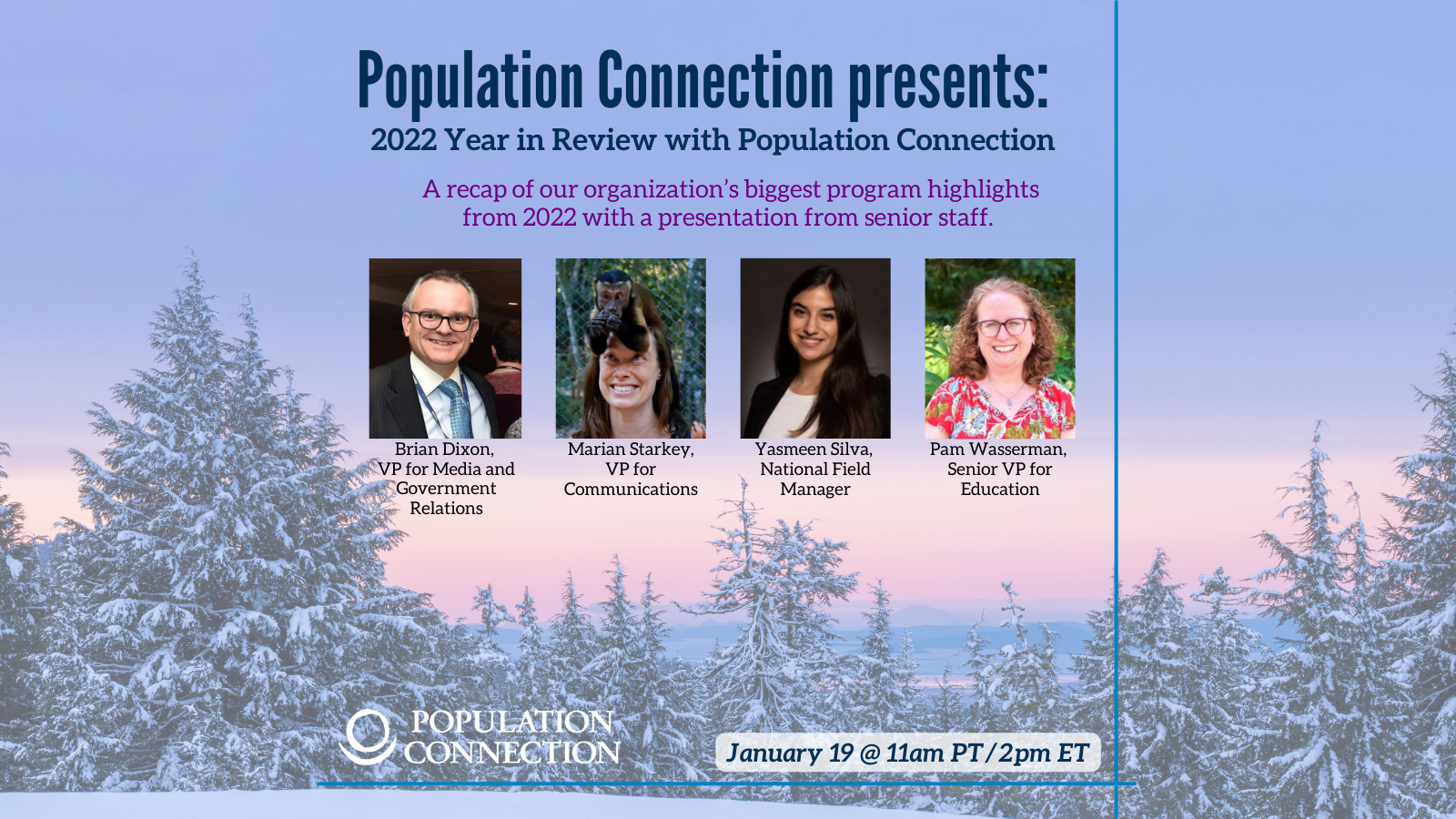2023 Virtual Events Archive
Throughout the year, we hosted a variety of virtual events including guest speakers, a photo contest, Global Partners presentations, and book club meetings. Our events have fostered a vibrant community dialogue on population trends, reproductive rights, and sustainable development

2023 Year in Review with Population Connection
We wrapped up the year with a presentation from senior staff highlighting our organization’s most significant accomplishments in 2023.
Presentation Date: December 14th, 2023
2023 Year in Review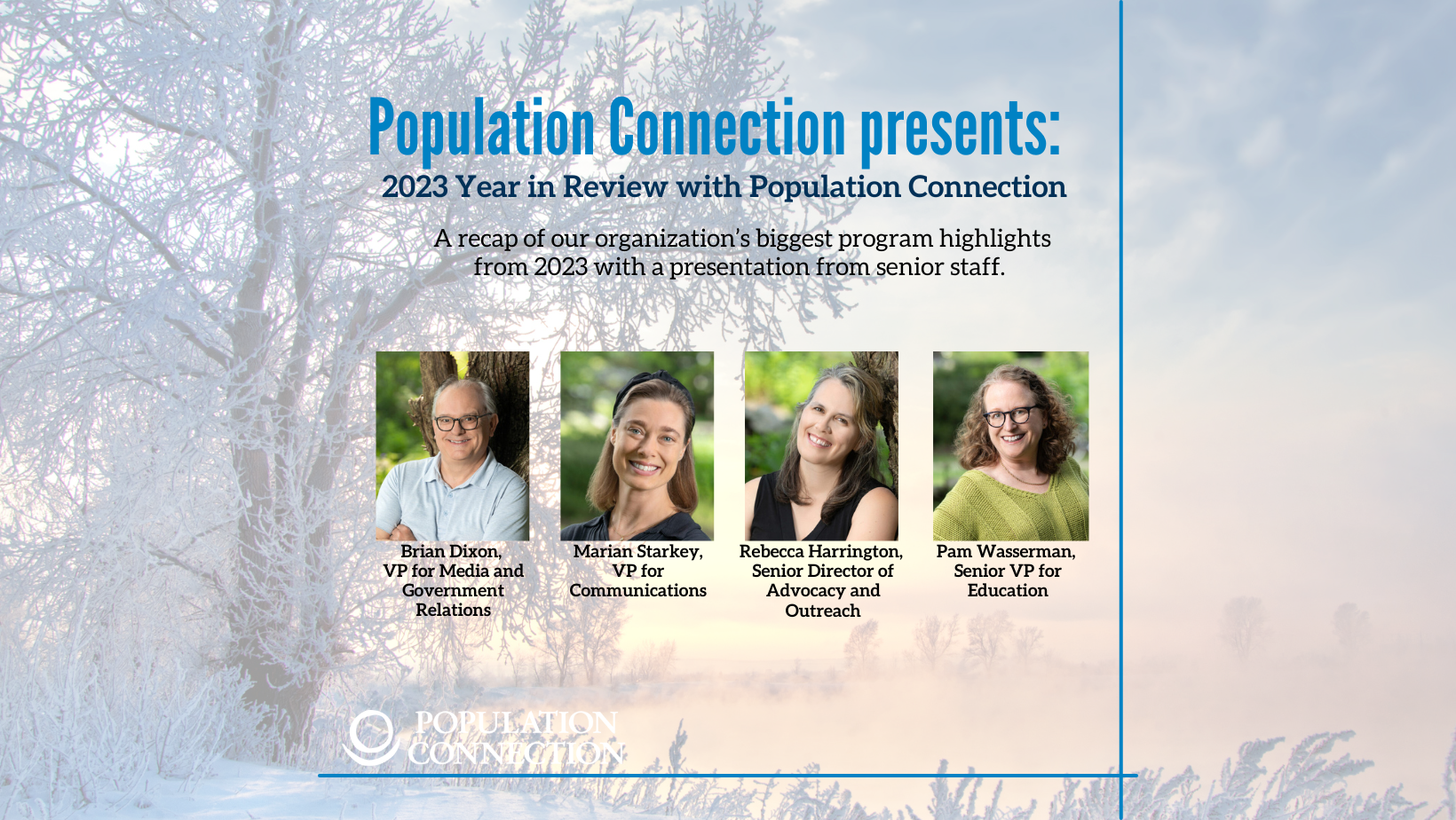

The First 1,000 Days and Early Childhood Nutrition in Guatemala
During the presentation, Seeds for a Future summarized the scientific literature on the significance of the first 1,000 days and provided a window into its application through their ‘Casa Granja’ or Backyard Farm project. Their integrated approach has a ripple effect, positively impacting individuals, families, and communities at large.
Presentation Date: November 30th, 2023
More Details Here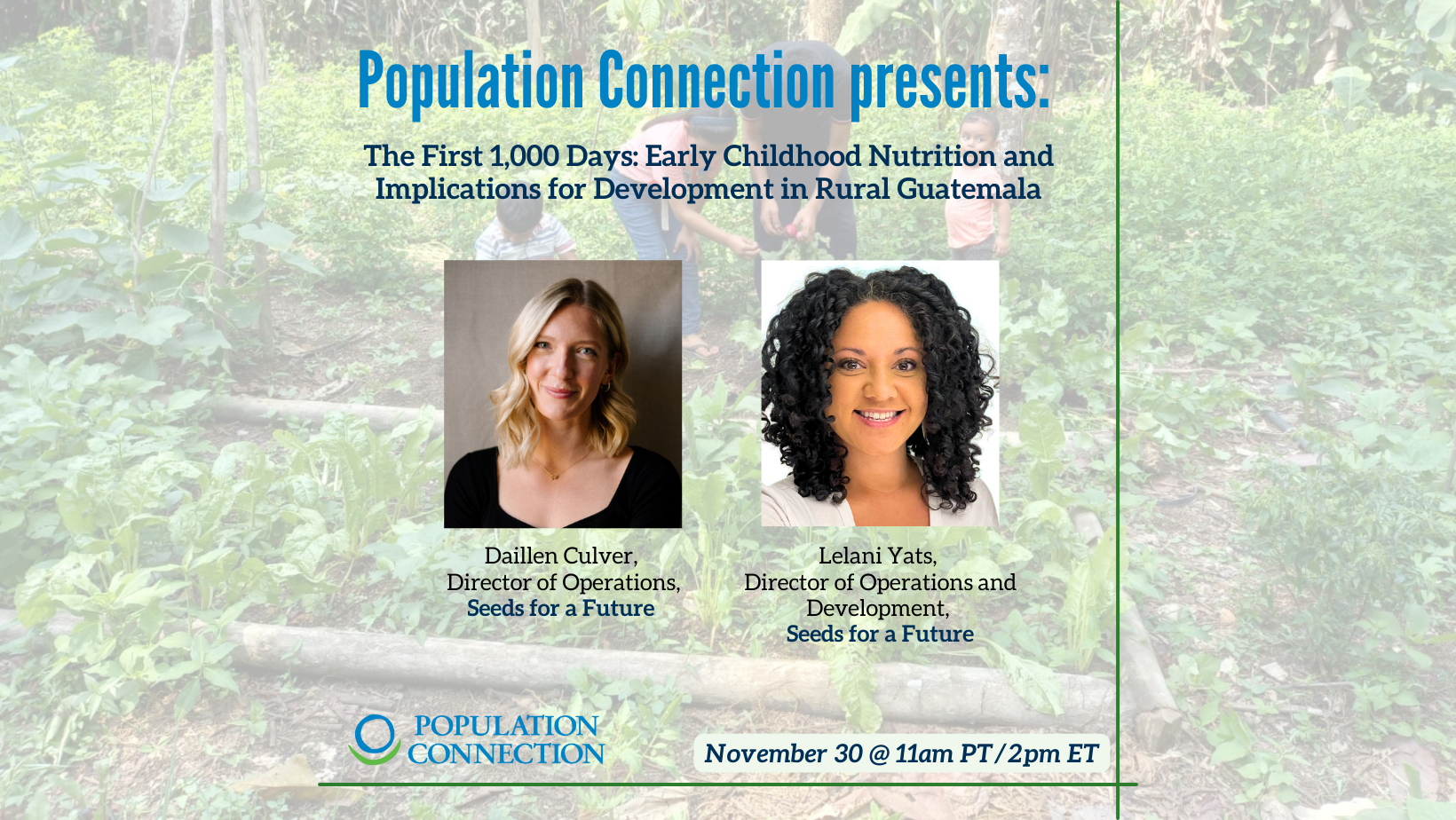

International Day of the Girl with Global Partners in East Africa
We celebrated International Day of the Girl with our Global Partners in East Africa! Our partners, Kakenya’s Dream and Girl Up Initiative, work to empower women and girls in their communities. Their work addresses longstanding gender inequalities by improving young girls’ access to education and healthcare services.
Presentation Date: October 10th, 2023
More Details Here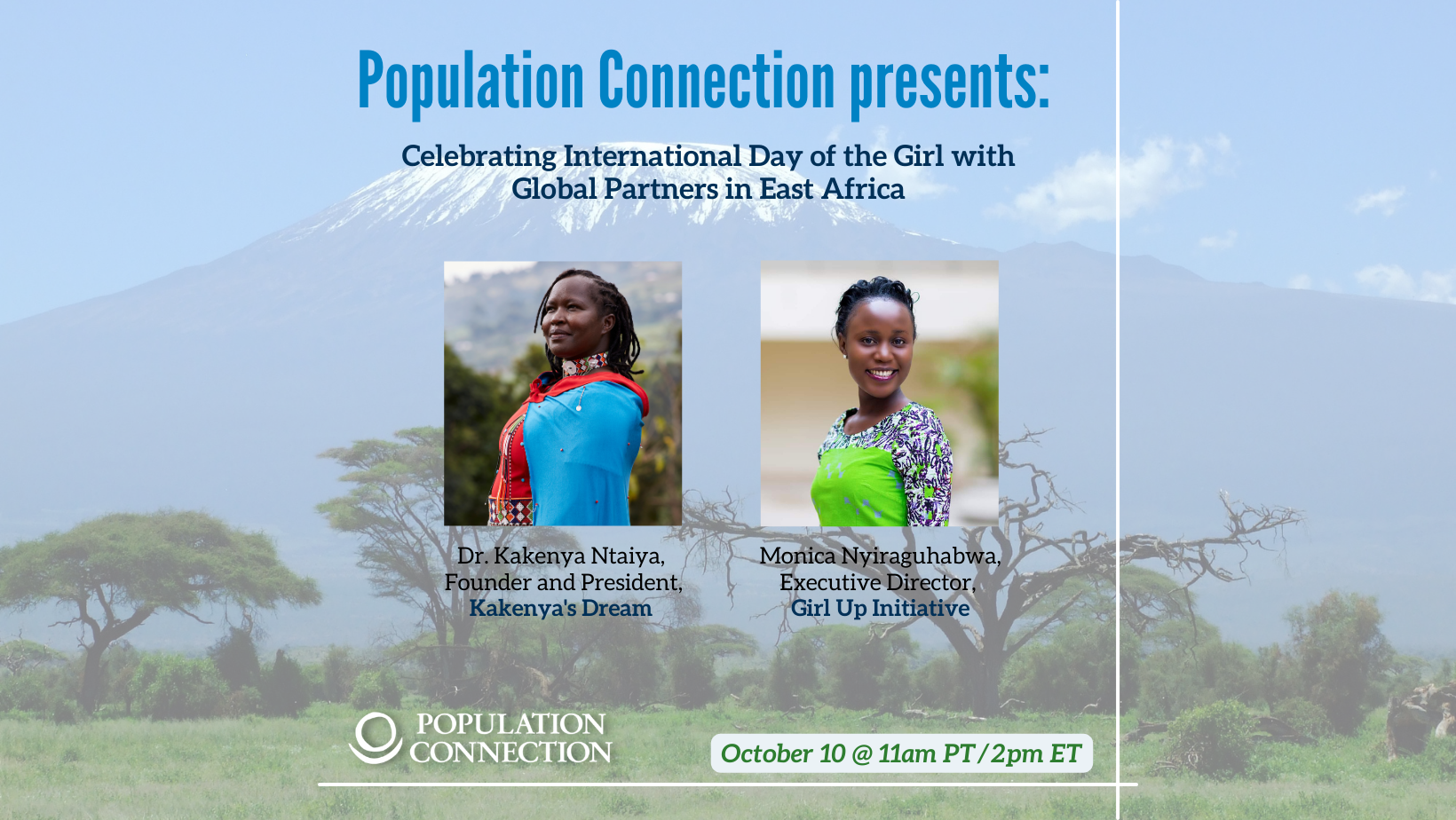

Marking World Contraception Day with Reproductive Healthcare Providers in Rural Guatemala
This World Contraception Day, we were honored to be joined by our Global Partners, WINGS and Wuqu’ Kawoq (Maya Health Alliance). Our Guatemalan-based partners work to deliver high-quality reproductive health education and services to rural communities in Guatemala.
Presentation Date: September 26th, 2023
More Details Here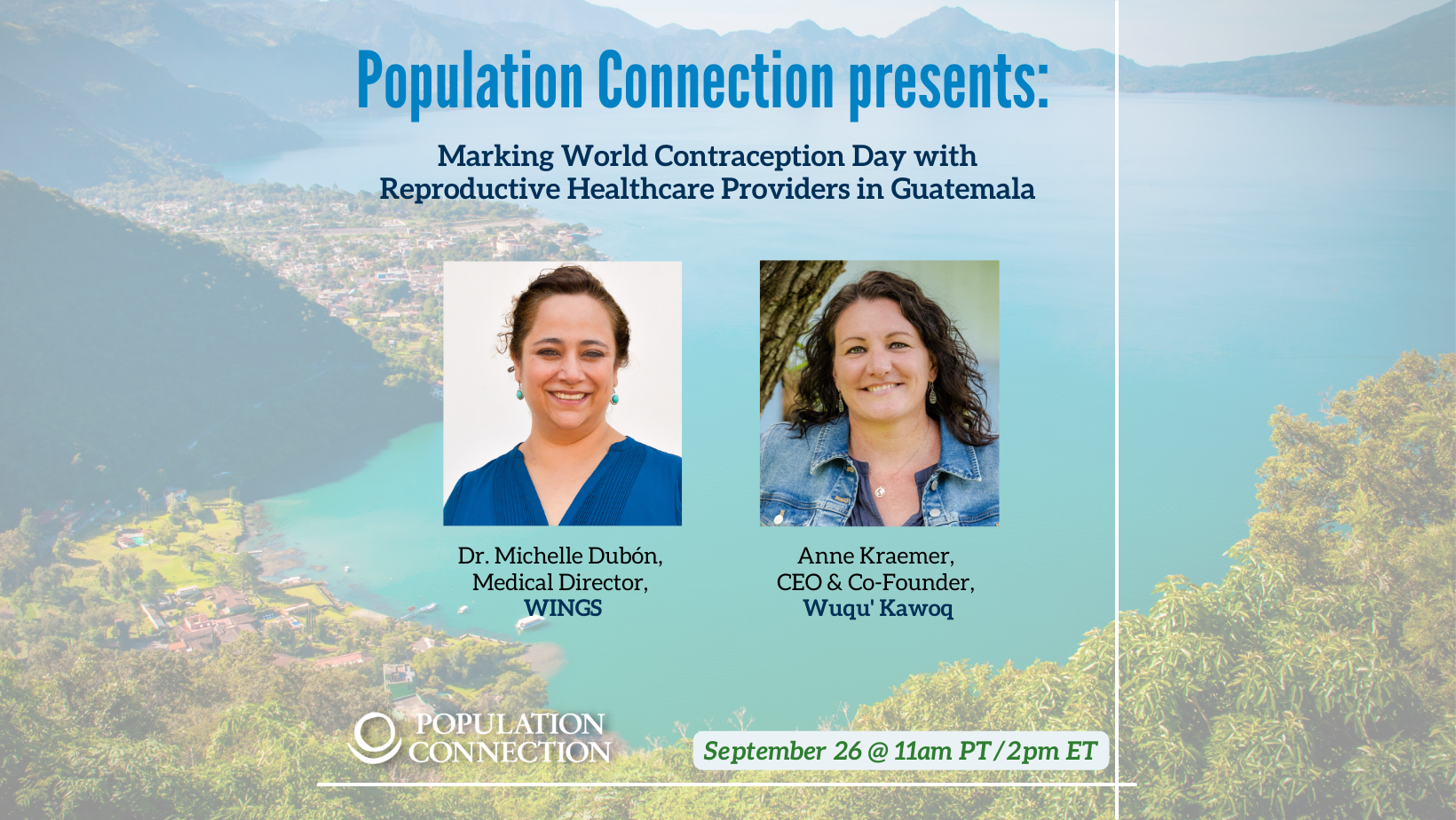

Integrating Population Dynamics to Boost Climate Resilience
Population Institute’s recent report analyzes the impacts of climate change in vulnerable countries worldwide. It emphasizes how the intersection of these factors poses substantial long-term challenges for climate resilience and adaptation.
Presentation Date: September 14th, 2023
More Details Here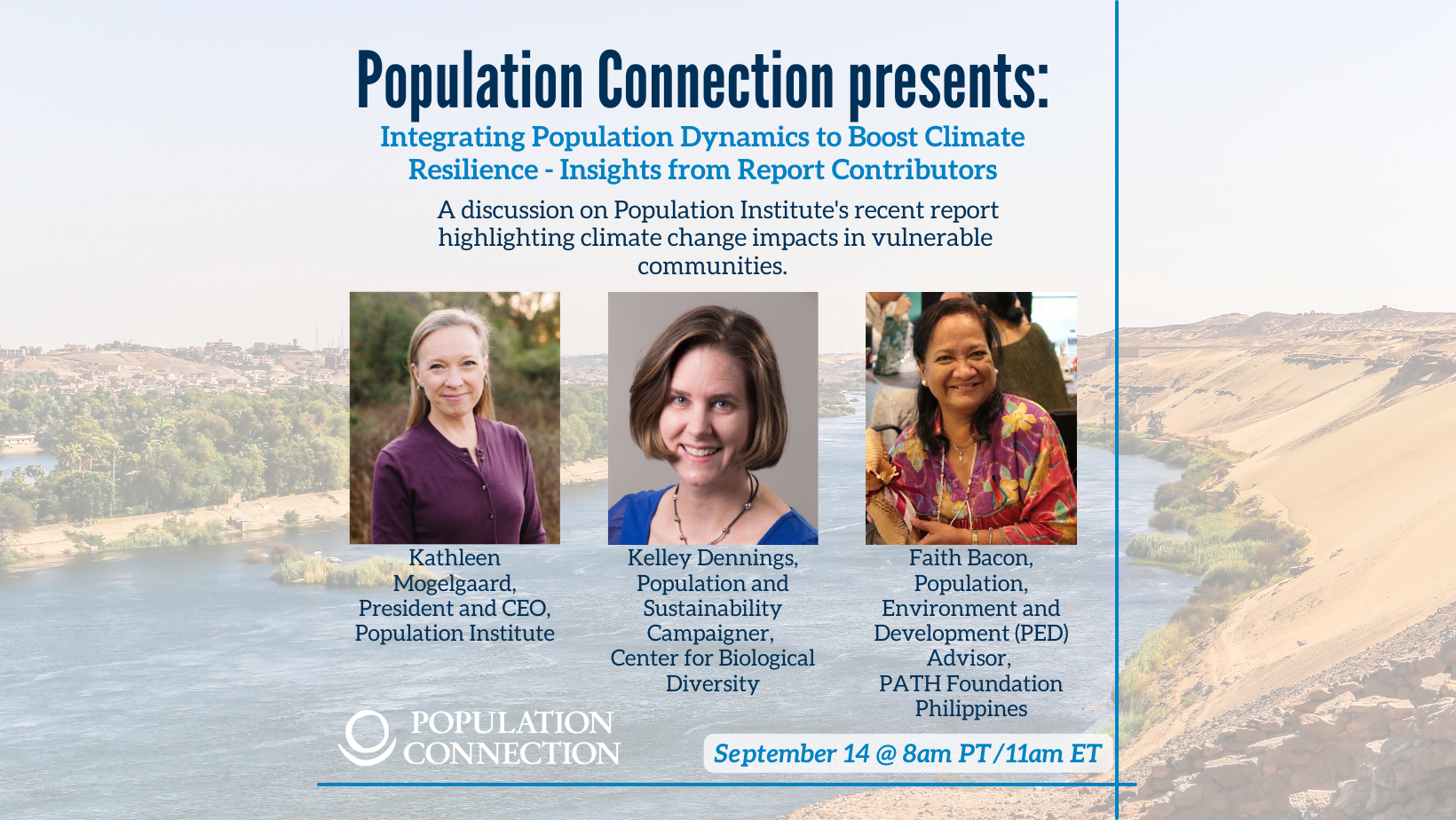

The End of Darwinism: How Humans are Overriding Evolution
Professor Ibbotson explores the relationship between humans and the environment through a Darwinian lens. By examining how human interventions have reshaped traditional evolutionary processes, he hopes to foster a deeper understanding of today’s ecological challenges.
Presentation Date: August 29th, 2023
More Details Here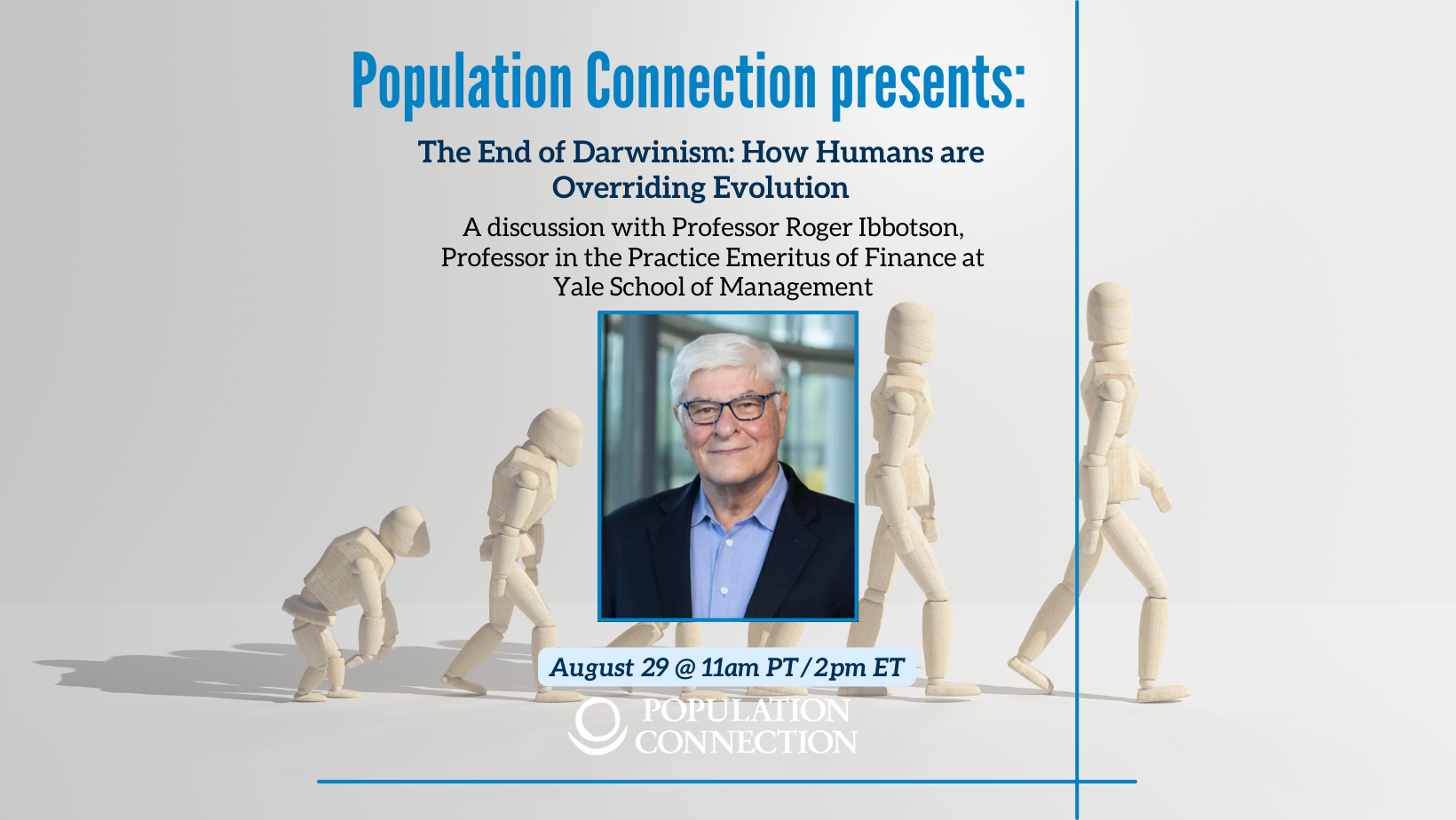

Celebrating Youth Leadership: A Story of Community-Led Change in Kafue, Zambia
Starting out as a high school service project, the African Education Program (AEP) now approaches its 20-year anniversary. We’re thrilled to announce our new Global Partner and to celebrate their journey. We’ll be hearing from the Co-Founder and Executive Director, Julie-Anne Savarit-Cosenza, and Lumuno Mweemba Chongo, Program Advisor of Amos Youth Centre.
Presentation Date: August 15th, 2023
MORE DETAILS HERE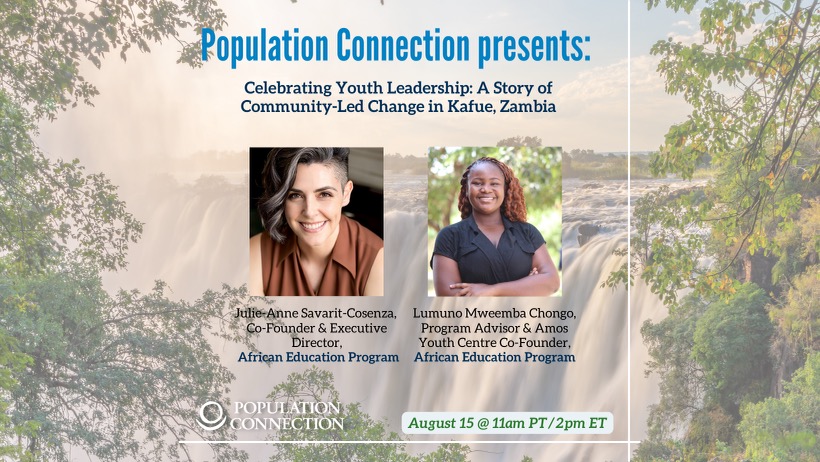

Low Birth Rates: Good for the Planet, Good for People
We marked World Population Day with our communications team: Marian Starkey, Hannah Evans, and Olivia Nater!
Our communications team discussed why low fertility is here to stay, outlined the many environmental benefits of slower population growth, and identified potential accommodations to the economic challenges presented by population aging.
Presentation Date: July 11th, 2023
MORE DETAILS HERE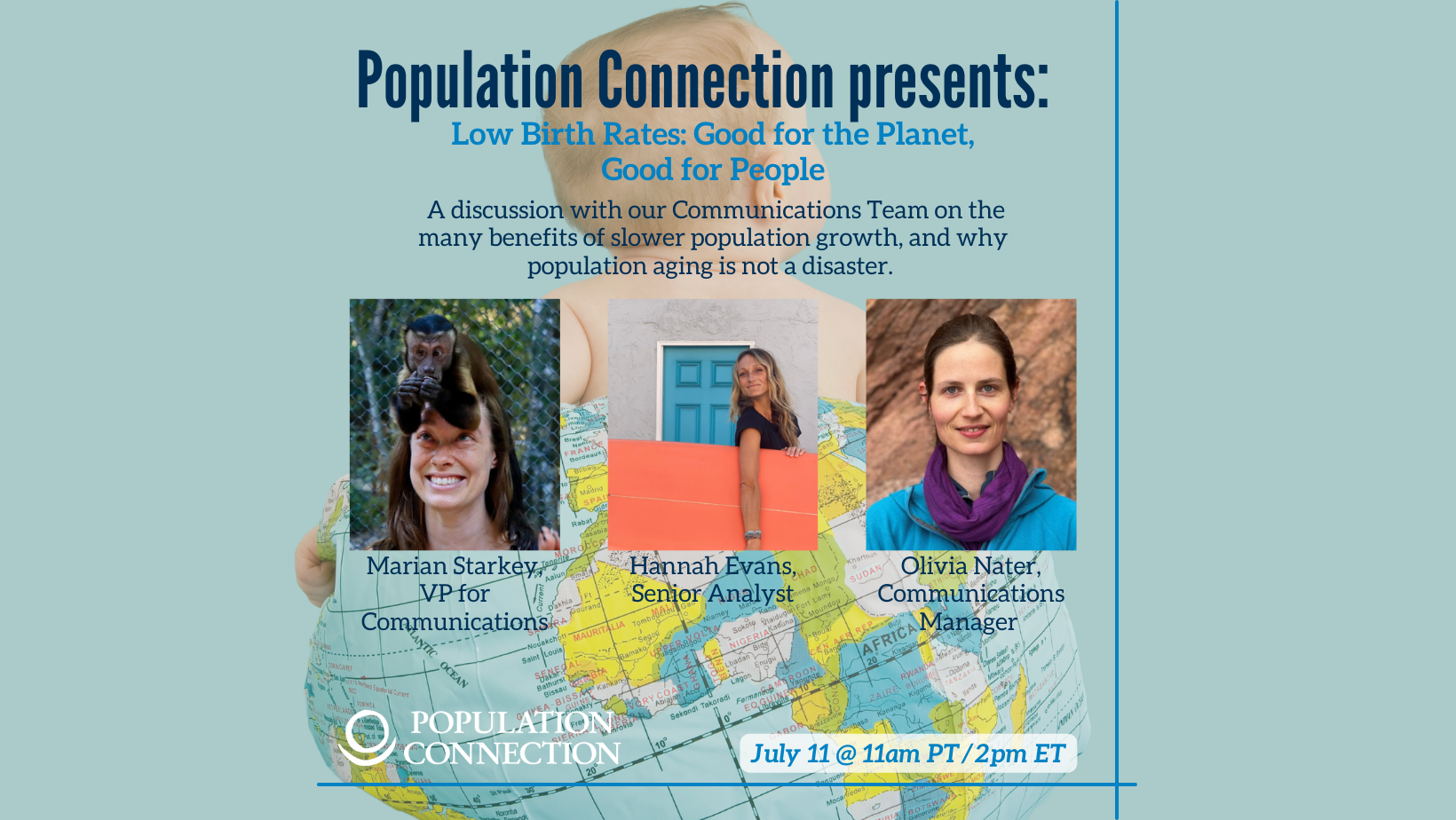

Global Partners Series: Women for Conservation
We celebrated World Rainforest Day with our Global Partner, Women for Conservation! We were inspired as the speakers delved into the organization’s community-based programs in conservation training, sustainable livelihoods, and family planning— all aimed at empowering rural women to become guardians of nature and protect critical biodiversity for generations.
Presentation Date: June 28th, 2023
More Details Here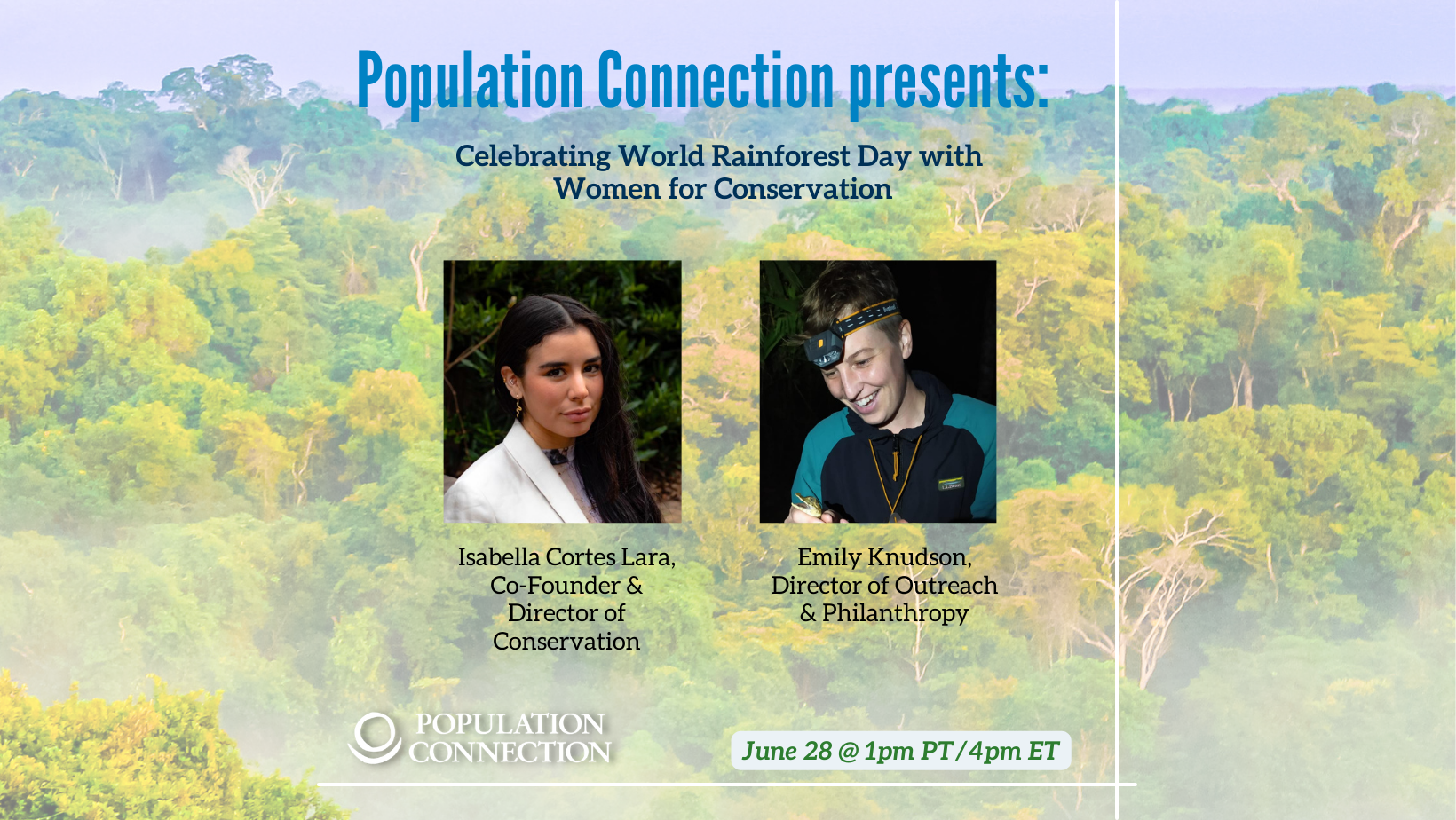

Global Partners Series: Lemur Love
We celebrated the International Day for Biological Diversity with Lemur Love, a non-profit organization dedicated to protecting Madagascar’s unique and beautiful lemurs! The organization’s long-term research presence is a vital tool for preserving biodiversity and engaging in meaningful relationships with people living in proximity to the biodiverse forests of Madagascar.
Presentation Date: May 24th, 2023
More Details Here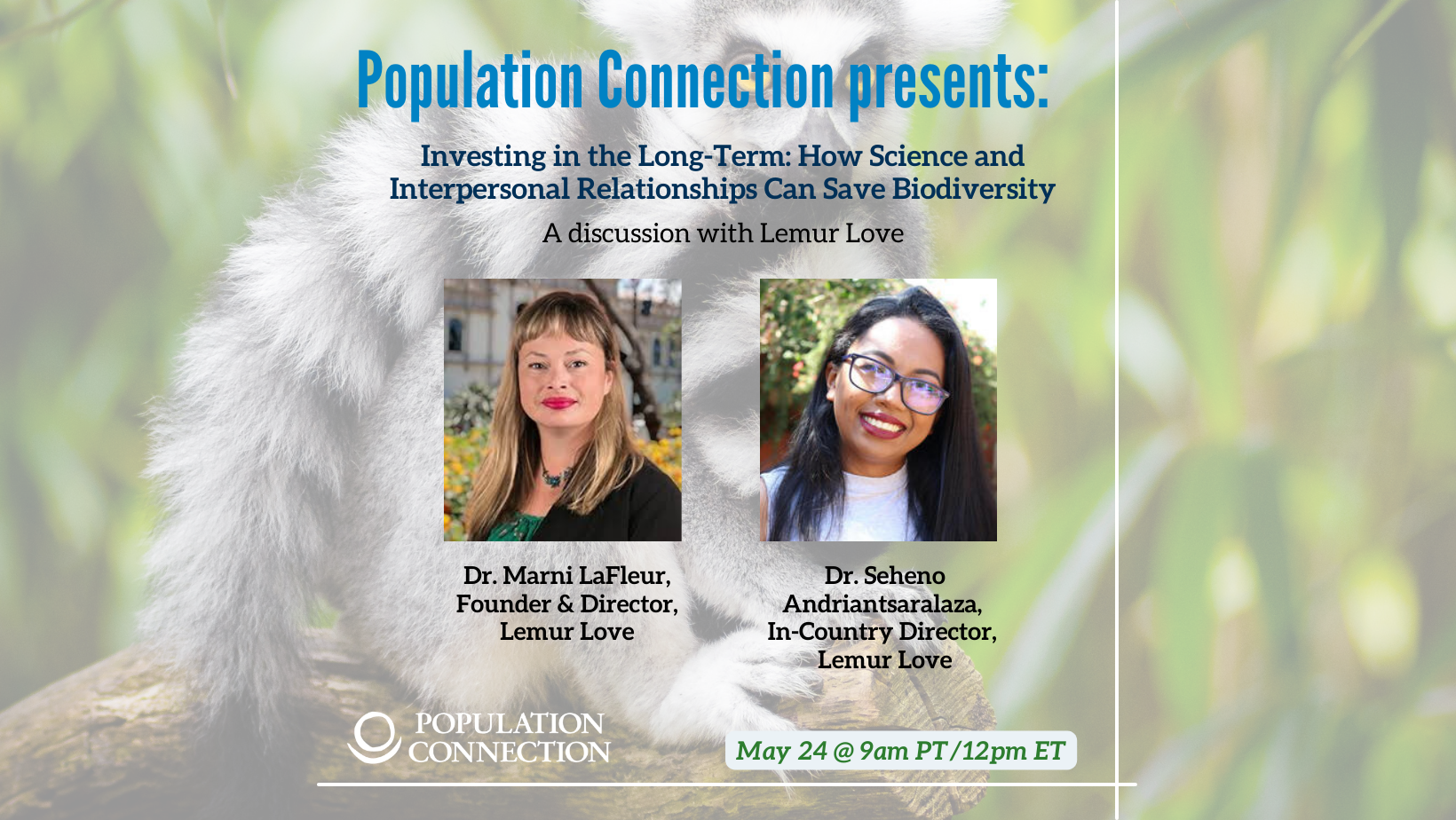

Global Partners Series: Conservation Through Public Health
One of Population Connection’s first partners was Conservation Through Public Health (CTPH). Based in Uganda, CTPH is an award-winning gorilla and wildlife conservation leader. The organization’s vital mission is to focus on the health and interspecies relationships of wildlife, humans, and livestock in and around East Africa’s protected areas.
To mark this year’s Earth Day, we were joined by CTPH’s Founder and Executive Director Dr. Gladys Kalema-Zikusoka.
Presentation Date: April 19th, 2023
More Details Here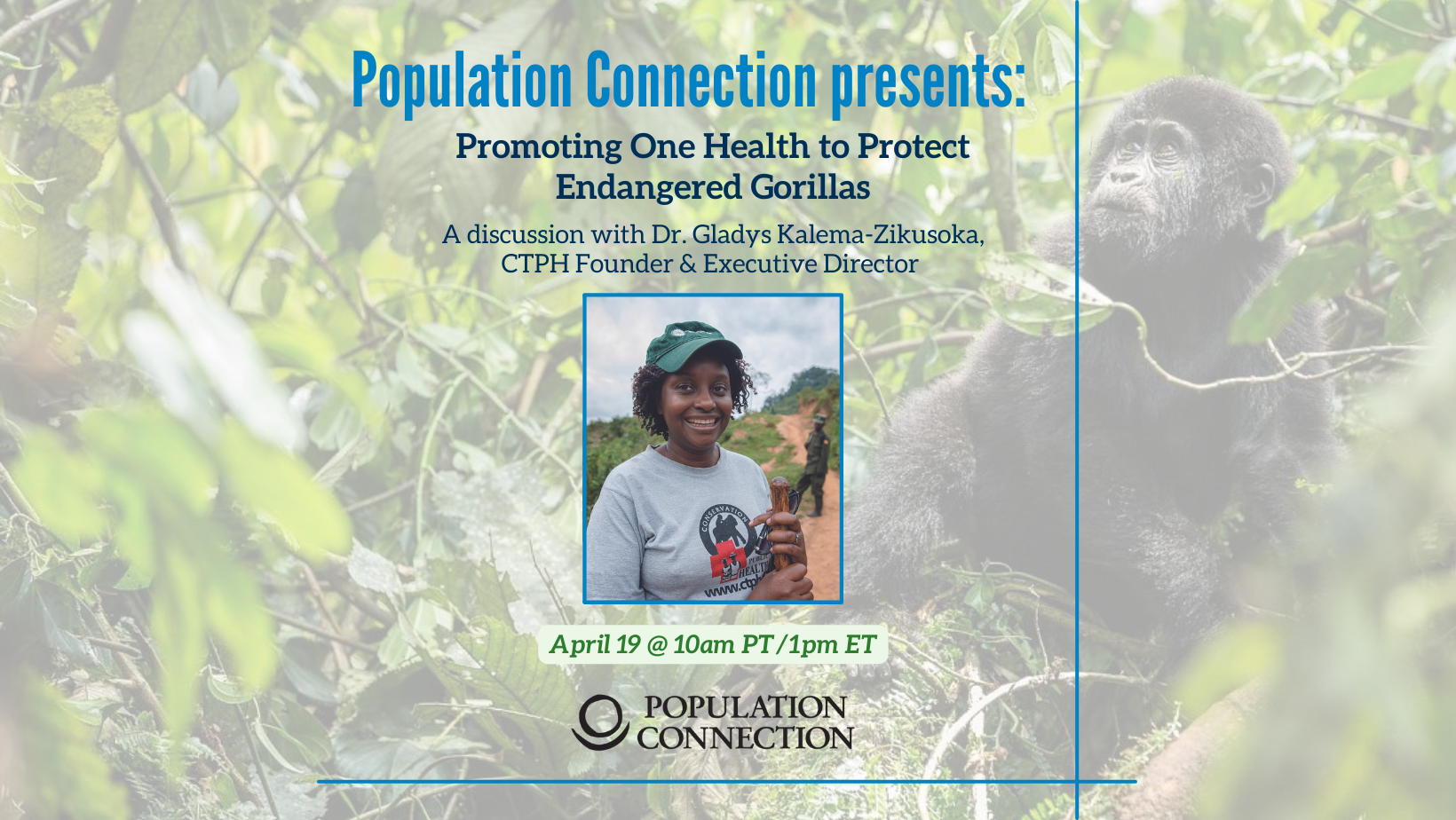

Whose Planet Is It, Anyway? Earth Day Challenges for a Crowded World
World population has more than tripled since the middle of the 20th century—with devastating impacts on people and our natural world. Yet, talking about overpopulation remains taboo in many circles.
We can’t bet the future of our living planet on technical solutions alone. Ending overpopulation by removing the barriers to smaller families must be a priority on Earth Day—and every day!
Presentation Date: April 13th, 2023
More Details Here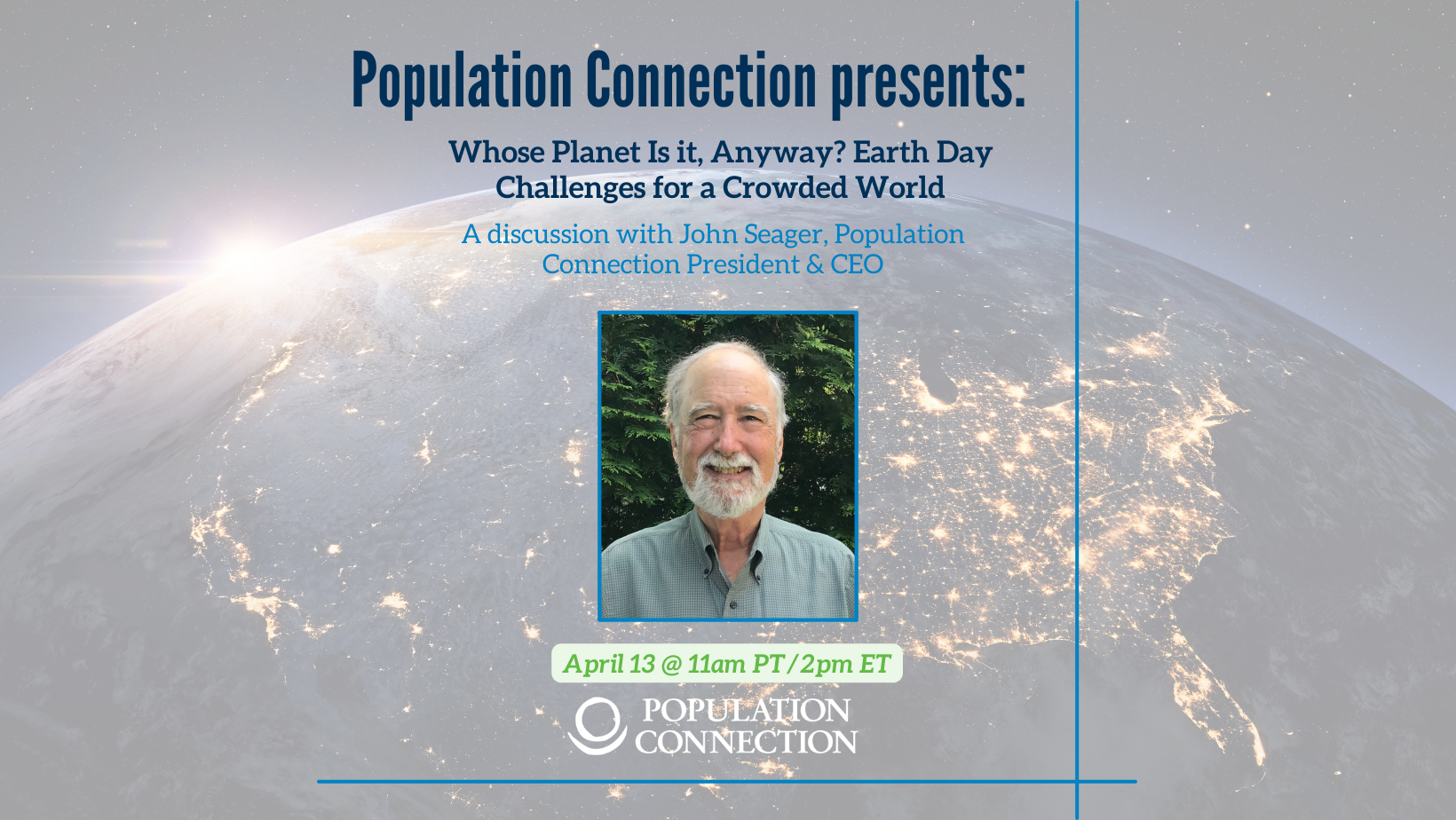

Global Partners Series: Unity For Women’s Empowerment
Rural Women’s Development and Unity Center (RUWDUC) Nepal is a nonprofit organization that supports rural development programs in environmental conservation, health care, and women’s empowerment throughout the far-western region of Nepal.
Presentation Date: February 9th, 2023
More Details Available Here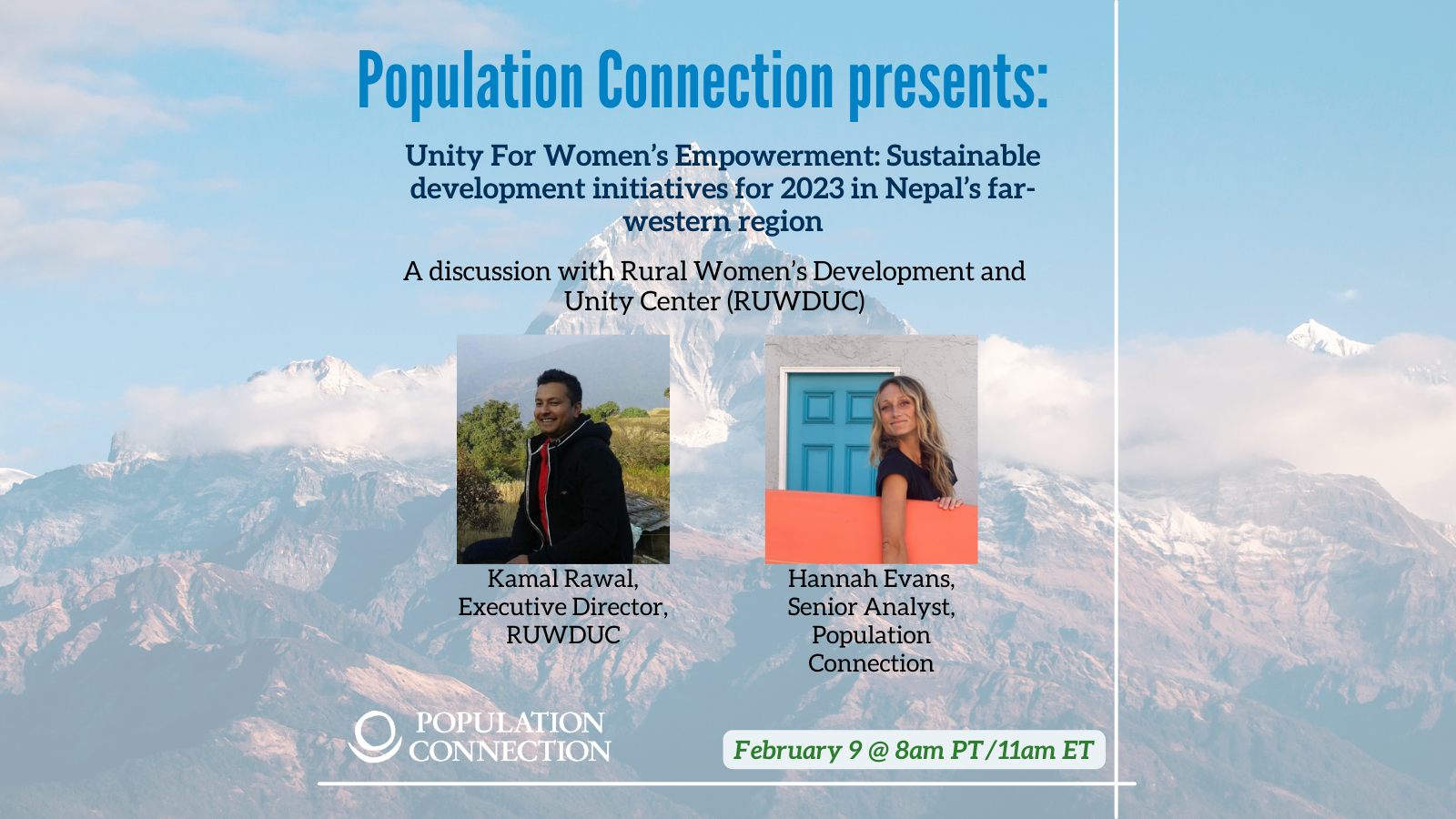

2022 Year in Review with Population Connection
Population Connection’s staff will walk you through Population Education’s newest offerings for K-12 students and educators; explain how we’re responding to changes in the reproductive rights advocacy landscape; give an overview of successful outreach efforts informing the public about population issues; and share updates on our Global Partners program.
Presentation Date: January 19th, 2023
More Details Available Here